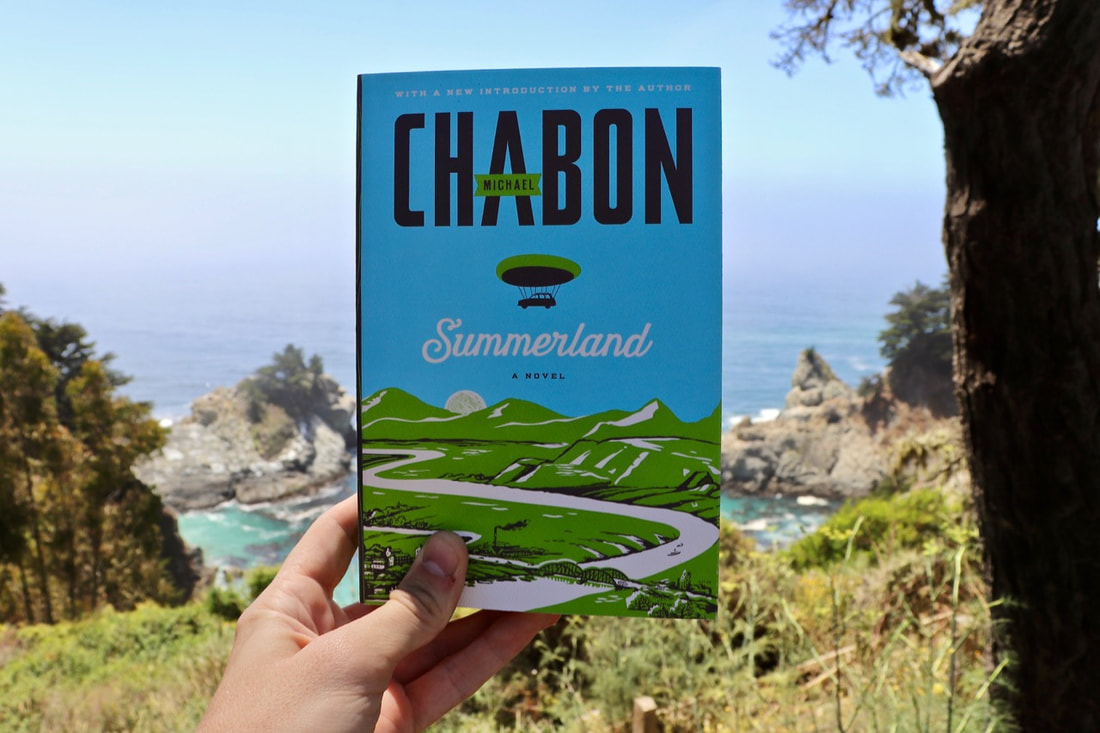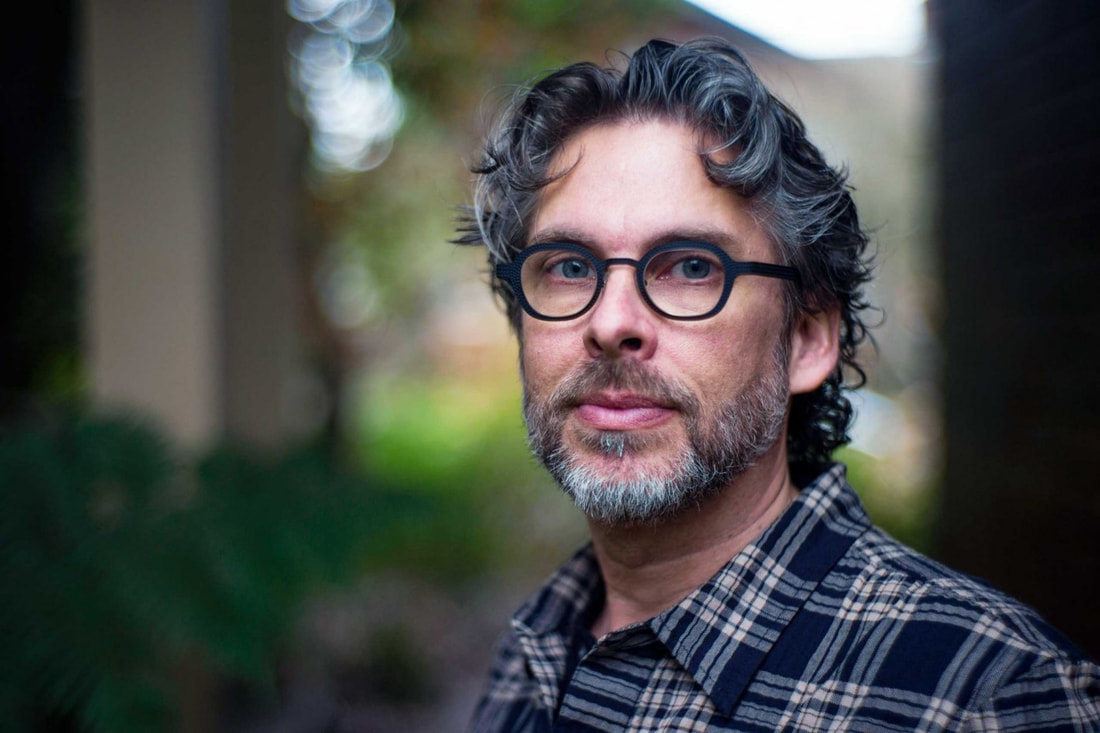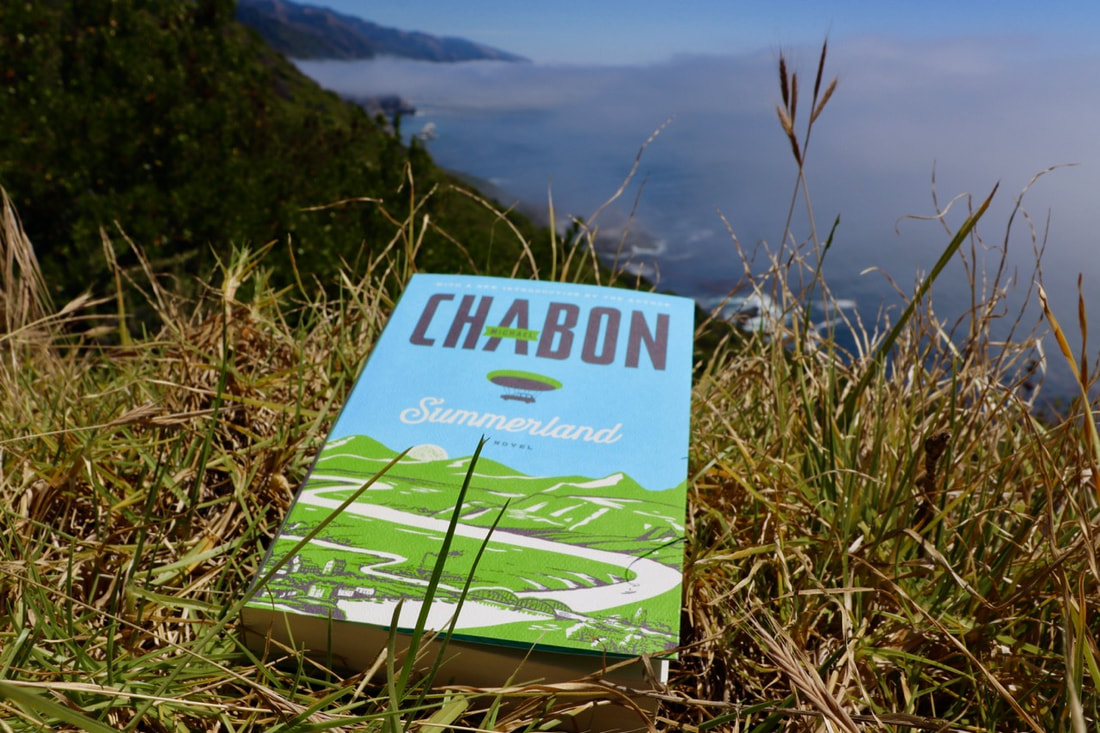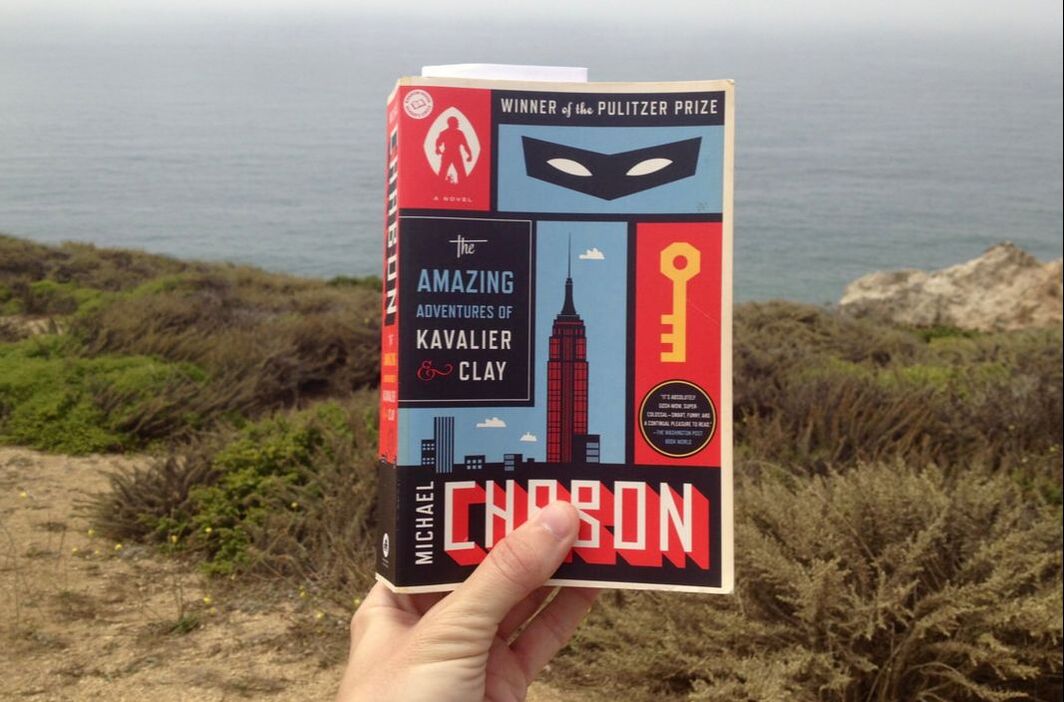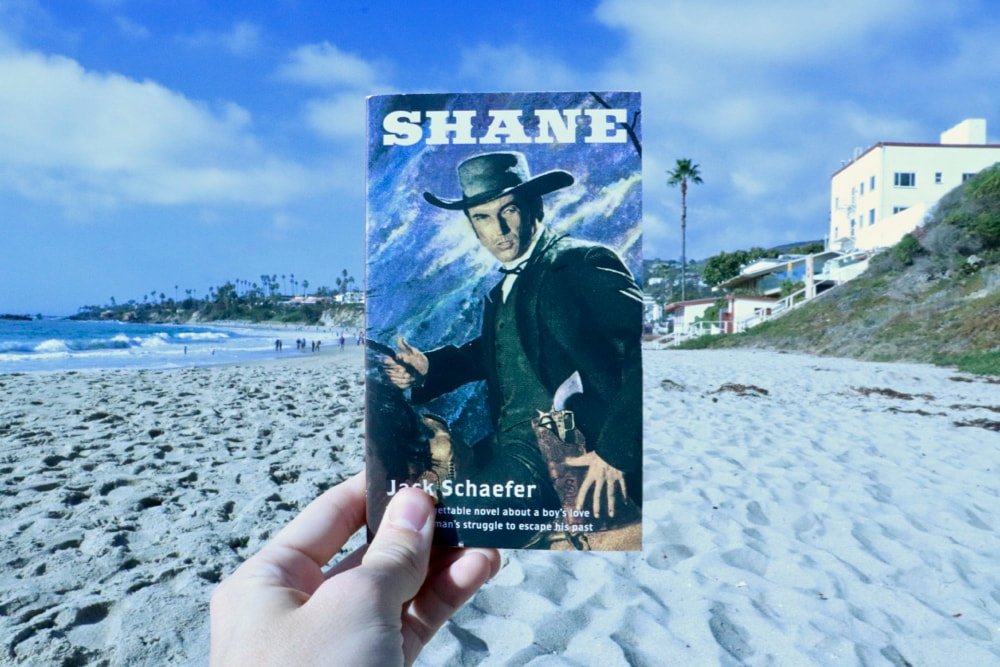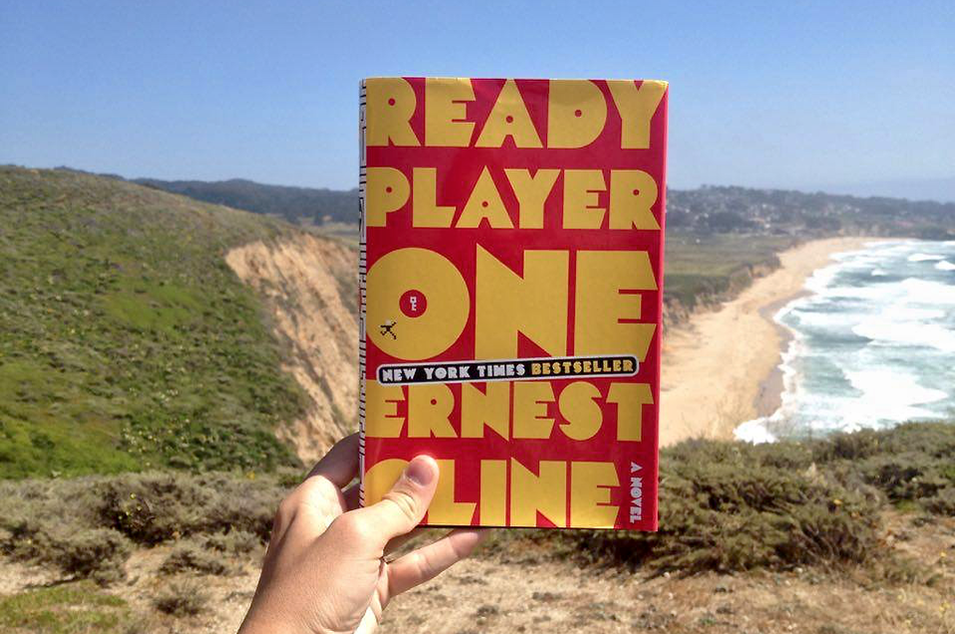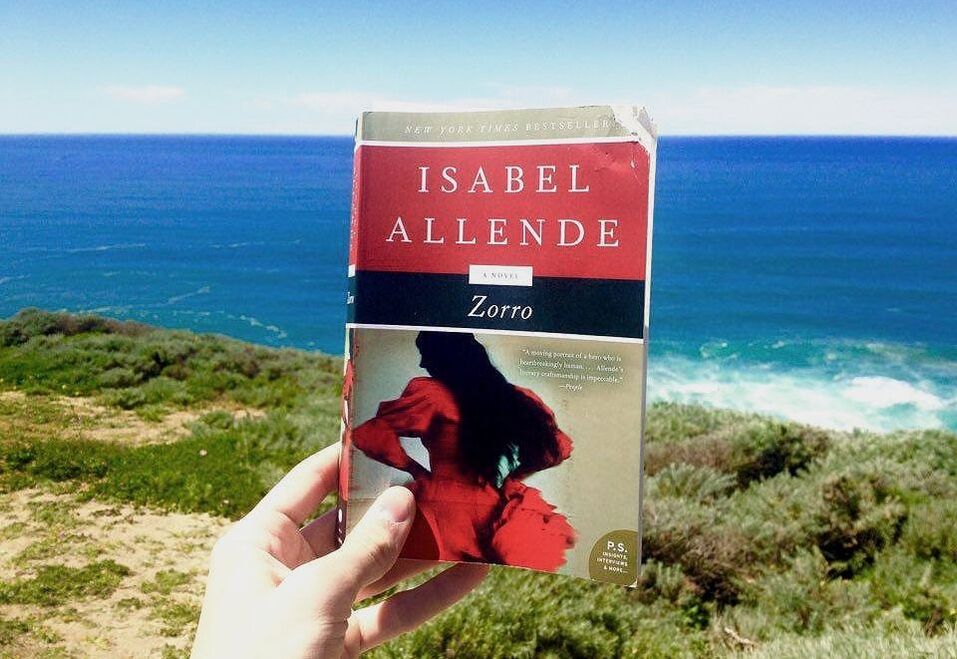"...Life was like baseball, filled with loss and error, with bad hops and wild pitches, a game in which even champions lost almost as much as they won, and even the best hitters were put out seventy percent of the time. Coyote was right to want to wipe it out, to call the whole sad thing on account of darkness."
— Michael Chabon, Summerland
— Michael Chabon, Summerland
Maybe today, maybe three decades gone, you've had the pleasure of experiencing a sunrise of sunrises or a sunset of sunsets. You know the ones. They mark the start or end of a decision or insight or journey. They paint themselves large and bright on your memory's wall. Maybe for years, maybe forever you return to the view and the feeling. Within or beside that memory shine a constellation of others too: how it feels to have the wind's invisible hands snapping at your clothes as you push 90 MPH; the sight of asphalt racing to endlessly unfurl before you; snacking on some hard-chosen spoils of a dusty town's gas station; laughing out loud to a podcast which hits the funny bone between the ears, drawing the curious eyes of fellow travelers; inhaling that familiar, salty cologne of an ocean breeze and hastily rolling up windows to buffer yourself from that green, freshly-fertilized farmland; relishing the exotic tang of a morning coffee that pries back open your sleepy eyelids; the warm, sunken embrace of a strange hotel bed. All these feelings and others are usually bottled best by a summer road trip. Except, sometimes at least, the term road trip seems wrong. Quake trip makes more sense.
Tyler Cowen writes about "quake books," which I've certainly had my fair share of (from gentle tremors to Magnitude 8+), and traveling often has the same effect—it shakes me to my core. It reshapes my world, slightly or greatly, and compels me to rethink time spent, priorities, and progress. Earlier this summer, I took a 20-hour, 1000-mile drive up the Pacific Coast Highway from my home in Orange County to Bodega Bay, north of San Francisco, and back again. The destination was a wedding at The Secret Gardens, a redwood grove that made a perfect rendezvous point for old friends. We ate, laughed, danced; caught up on the past two years and reminisced about our times at Huckberry. I made new friends too. I called the lady goodnight who was unable to be there, herself settling into a Master's program across the world in the Netherlands. I returned the next morning solo to McWay Falls in Big Sur and the art colony, Carmel-by-the-Sea, two places she and I still love and spent our first weekend exploring together four years ago. I stopped into a favorite book store, River House, and picked up two books per usual. This time it was a fat, unabridged translation of Dostoyevsky's The Brothers Karamazov (The cashier looked at me in awe—or maybe fear—when I plopped the 1200+ page tome on the checkout counter) and Michael Chabon's Summerland. I'm hoping Dostoyevsky is one of those high-magnitude quakers. Chabon's was a gentler, welcoming nudge, and not at all less enjoyable or meaningful to me.
Set on the fictional Clam Island in the Pac Northwest, worst-baseball-player-ever and twelve-year-old Ethan Feld, is thrust into an ancient and magical war—one decided by America's favorite past-time. In order to restore sunshine to Summerland, the western section of Clam Island beloved for it's always-sunny weather, Ethan must recruit a mythic team of werefoxes, giants, and humans to defeat Coyote in the World Series. His swing has got to improve though. The perennial easy-out, he'll have to consult the legendary baseball manual "How to Catch Smoke and Lightning" as well as dig deep in himself to save the world. This epic coming-of-age journey isn't just about the destination though. Chabon's style, which I also love in The Amazing Adventures of Kavalier and Clay, has a gentle, whimsical energy to it. His subtle observations of kids and adults (and kids connecting with adults), clever world-building elements that enhance rather than distract, and simply-stated themes made Summerland a large, bright, memorable quake book. Basking in the nostalgic escapism of Chabon up and down the Pacific, was much like experiencing a sunrise of sunrises.
Love you, Trini. [JG]
Tyler Cowen writes about "quake books," which I've certainly had my fair share of (from gentle tremors to Magnitude 8+), and traveling often has the same effect—it shakes me to my core. It reshapes my world, slightly or greatly, and compels me to rethink time spent, priorities, and progress. Earlier this summer, I took a 20-hour, 1000-mile drive up the Pacific Coast Highway from my home in Orange County to Bodega Bay, north of San Francisco, and back again. The destination was a wedding at The Secret Gardens, a redwood grove that made a perfect rendezvous point for old friends. We ate, laughed, danced; caught up on the past two years and reminisced about our times at Huckberry. I made new friends too. I called the lady goodnight who was unable to be there, herself settling into a Master's program across the world in the Netherlands. I returned the next morning solo to McWay Falls in Big Sur and the art colony, Carmel-by-the-Sea, two places she and I still love and spent our first weekend exploring together four years ago. I stopped into a favorite book store, River House, and picked up two books per usual. This time it was a fat, unabridged translation of Dostoyevsky's The Brothers Karamazov (The cashier looked at me in awe—or maybe fear—when I plopped the 1200+ page tome on the checkout counter) and Michael Chabon's Summerland. I'm hoping Dostoyevsky is one of those high-magnitude quakers. Chabon's was a gentler, welcoming nudge, and not at all less enjoyable or meaningful to me.
Set on the fictional Clam Island in the Pac Northwest, worst-baseball-player-ever and twelve-year-old Ethan Feld, is thrust into an ancient and magical war—one decided by America's favorite past-time. In order to restore sunshine to Summerland, the western section of Clam Island beloved for it's always-sunny weather, Ethan must recruit a mythic team of werefoxes, giants, and humans to defeat Coyote in the World Series. His swing has got to improve though. The perennial easy-out, he'll have to consult the legendary baseball manual "How to Catch Smoke and Lightning" as well as dig deep in himself to save the world. This epic coming-of-age journey isn't just about the destination though. Chabon's style, which I also love in The Amazing Adventures of Kavalier and Clay, has a gentle, whimsical energy to it. His subtle observations of kids and adults (and kids connecting with adults), clever world-building elements that enhance rather than distract, and simply-stated themes made Summerland a large, bright, memorable quake book. Basking in the nostalgic escapism of Chabon up and down the Pacific, was much like experiencing a sunrise of sunrises.
Love you, Trini. [JG]
WHO IS MICHAEL CHABON?
| Michael Chabon is the bestselling and Pulitzer Prize-winning author of The Mysteries of Pittsburgh, A Model World, Wonder Boys, Werewolves in Their Youth, The Amazing Adventures of Kavalier and Clay, The Final Solution, The Yiddish Policemen's Union, Maps and Legends, and Gentlemen of the Road. He lives in Berkeley, California, with his wife, the novelist Ayelet Waldman, and their children. |
"Clam Island was a small, green, damp corner of the world. It was known, if at all, for three things. First was its clams. Second was the collapse, in 1943, of the Clam Narrows Bridge. You might have seen an old film of the spectacular disaster, on TV: the long steel bridge-deck flapping and whipping around like a gigantic loose shoelace just before it falls to pieces and splashes into the chilly waters of Puget Sound. The Clam Islanders had never really taken to the bridge that connected them to the mainland, and they were not sorry to see it go. They went back to riding the Clam Island Ferry, which they greatly preferred. You could not get a cup of coffee or clam chowder, hear all about your neighbor's sick cousin or chicken, on Clam Narrow Bridge....Islands have always been strange and magical places; crossing the water to reach them ought to be, even in a small way, an adventure. The last thing that Clam Island was known for, along with its excellent clams (if you like clams) and it's fallen down bridge, was its rain."
— Michael Chabon, Summerland
— Michael Chabon, Summerland
YOU MAY ALSO LIKE

